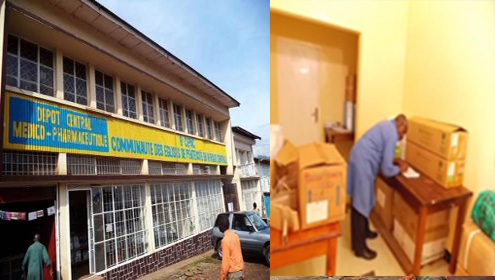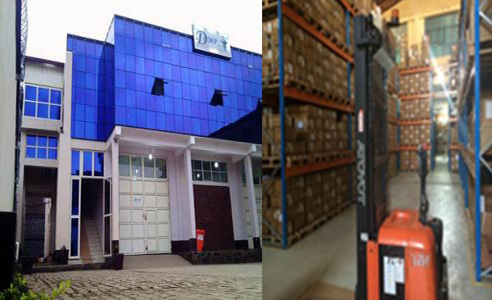In the Democratic Republic of the Congo (DRC), a public-private, not-for-profit federation of Regional Distribution Centers (Centrales de distribution regionals [CDR]) manages the storage and distribution of health commodities. In most cases, the warehouses merely function as transit depots for donor-funded health commodities as they fail to meet the required standards and lack the financial resources to support their own operations.
In 2011, USAID and implementing partners developed an innovative approach of providing holistic support to all Agency-supported CDRs. This included building capacity for storage, management and distribution of health commodities; promoting effective financial management and investment through business planning; and appropriately managing the income generated through services provided to donors. Capitalizing on the Agency’s holistic support, the DCMP 8th CEPAC warehouse, based in Bukavu in eastern DRC, engaged in an improvement and upgrading process through the renovation and extension of the warehouse facilities.
As a result, DCMP’s storage capacity increased from 430m3 in 2011 to 7,264m3 in 2015, and their business capital increased from $400,000 in 2012 to more than $2 million in 2016. Additionally, 20 qualified personnel were hired, including four pharmacists. A quality assurance section was also established to improve compliance with
required storage conditions and promote good distribution practices.
Between 2011 and 2015, PMI moved $3 million worth of malaria commodities through the DCMP 8th CEPAC warehouse, including 2.2 million malaria treatments, 700,000 rapid diagnostic tests, and 527,000 insecticide-treated nets. This represents 69 percent of all Agency-procured commodities managed by the warehouse. Furthermore, almost $200,000 was paid in stock management fees. According to the Deputy Director of the National Essential Medicines Program, Fidele Ngoma, “The development of the 8th CEPAC warehouse can be attributed to an efficient allocation of management fees since 2013. The warehouse plays a major supply chain role in South Kivu Province due to its improved distribution practices.” Going forward, the DCMP 8th CEPAC warehouse aims to meet the international standards in order to become the second Agency/European Union prequalified supplier in the country.


